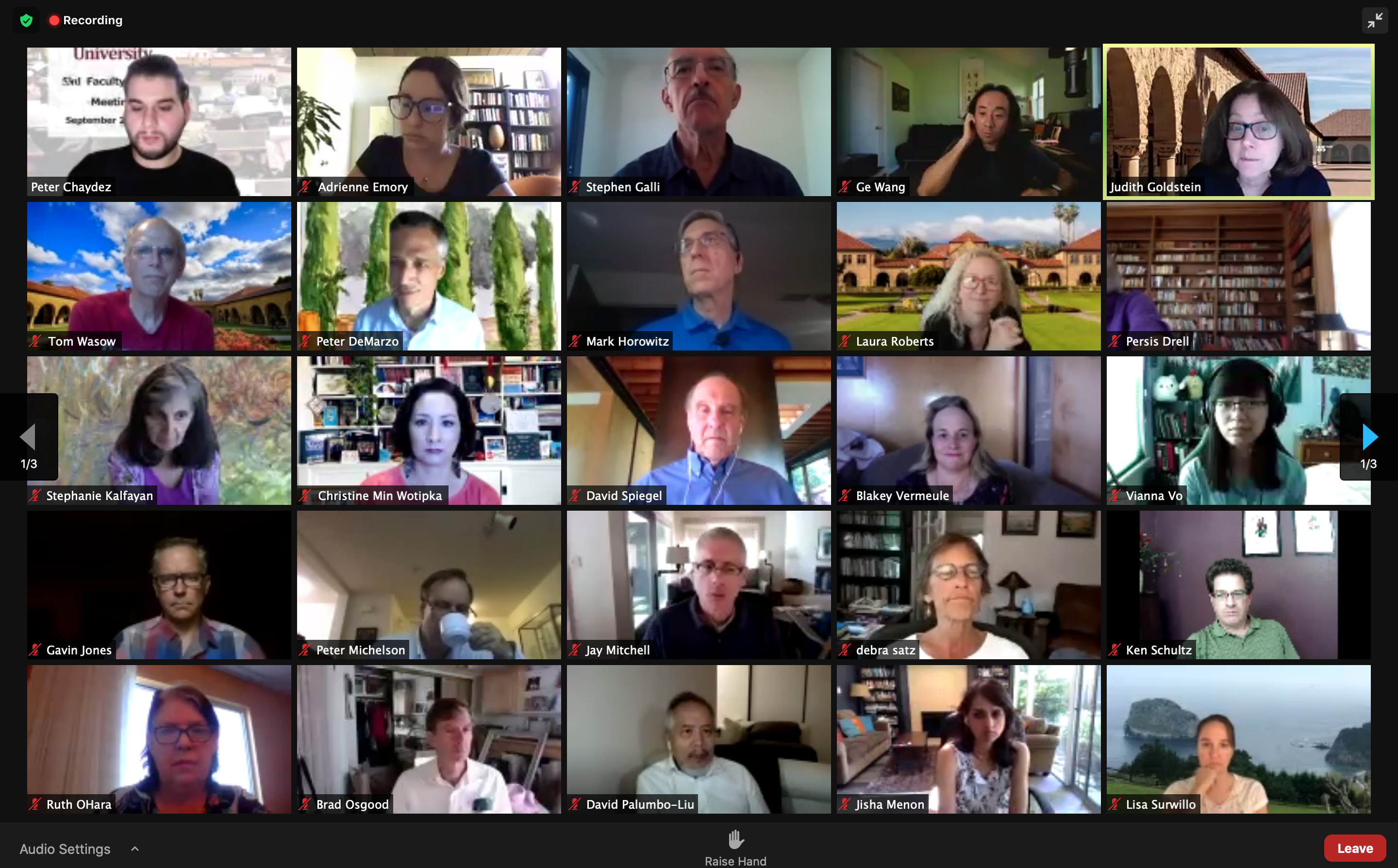Faculty members pushed back on University leaders’ criticism of an open letter authored by Stanford Medicine faculty criticizing Scott Atlas at Thursday afternoon’s Faculty Senate meeting. The Senate also approved changes to Stanford’s Title IX procedures following the release of new federal guidelines in May.
Ninety-eight Stanford faculty members with expertise in infection disease, microbiology, immunology, epidemiology and public health issued a statement on Sept. 9 calling attention to alleged falsehoods and misrepresentations espoused by White House adviser and Hoover Institution Senior Fellow Scott Atlas surrounding the coronavirus pandemic.
In the statement, Stanford faculty members noted that many of Atlas’ opinions counter established science, undermine public health authorities and create barriers toward generating effective public health policy.
In response to this open letter, Atlas, backed by the White House and President’s legal team, threatened to sue Stanford faculty for defamation.
“The fact that Atlas is now using one of Trump’s lawyers to threaten to sue our colleagues for defamation as individuals makes it clear that the letter was read as intended, a collective expression of free speech, rather than an attempt to represent the University as a whole,” said Associate Chair of Psychiatry and Faculty Senate member David Spiegel.
Provost Persis Drell and Faculty Senate Chair Judith Goldstein sent an email to Stanford faculty the following week on Sept. 14, reprimanding authors of the open letter:
“In the last week, we saw an inappropriate use of our official academic council email list,” they wrote. “A letter from some medical school faculty was written and signed consistent with the freedom of faculty to voice their opinions. However, the letter was distributed to all members of the academic council using a University email list and this was not consistent with policy.”
Spiegel expressed his disappointment with the aforementioned email.
“I was frankly shocked and disheartened by the focus of this email on the process of dissemination of the faculty statement, rather than its content,” Spiegel said. “I admire what my colleagues did in writing and signing this statement. They deserve our appreciation and support, rather than having their wrists slapped for the use of a Stanford listserv.”
In response, Goldstein acknowledged at the meeting that “almost everyone is sympathetic with the letter, but the problem of using listserv was one of precedent.”
Drell expressed interest in creating a forum for faculty to express concerns, although she maintained that the letter was a violation of University policy.
The Faculty Senate also voted to approve new Title IX procedures, following the release of new federal regulations from the Department of Education in May.
Under the new procedures, Title IX complaints must go through an official hearing, and all parties must be offered the opportunity for live cross-examination. Additionally, the criteria for what constitutes a Title IX complaint have been narrowed. As a result, according to Drell, Stanford created a parallel process for non-Title IX complaints, which “gets rid of harmful conditions” like the requirement for a live cross-examination.
School of Medicine professor Laura Roberts expressed these sentiments when referring to the vote taken by the Faculty Senate.
“I think it’s very obvious how hard this was and that we all felt very much constrained by federal demand on our University. It’s obvious that these new regulations are not sympathetic and not supportive of survivors of sexual assault.”
A previous version of this article misspelled David Spiegel and has been corrected to reflect his name’s proper spelling. The Daily regrets this error.
Contact Nina Iskandarsjach at ninaisk ‘at’ stanford.edu.
